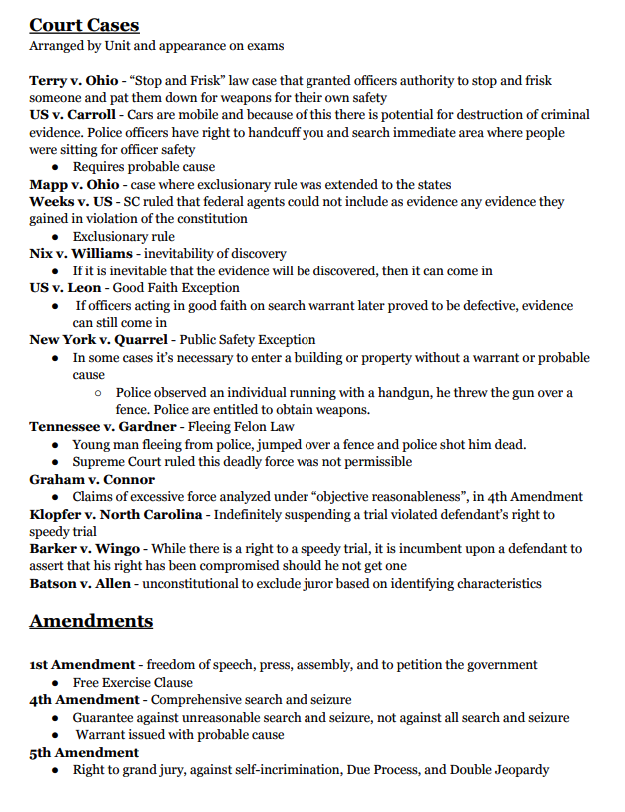The Criminal Justice System Notes
Summary:
Excerpt:
The Criminal Justice System Notes
Amendments
1st Amendment – freedom of speech, press, assembly, and to petition the government
● Free Exercise Clause
4th Amendment – Comprehensive search and seizure
● Guarantee against unreasonable search and seizure, not against all search and seizure
● Warrant issued with probable cause
5th Amendment
● Right to grand jury, against self-incrimination, Due Process, and Double Jeopardy 6th Amendment – Rights of criminal defendants
● Right to a speedy and public trial, right to a lawyer, right to an impartial jury, right to know your accusers and the nature of the charges and evidence against you
8th Amendment – Cruel and unusual punishment
● Prohibits cruel and unusual punishment and excessive fines and bail
14th Amendment – Due Process
● Applies Due Process (5th Amendment) to the states


Reviews